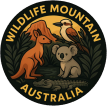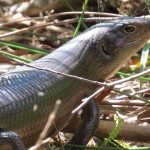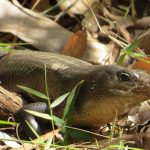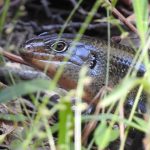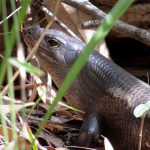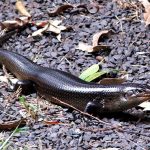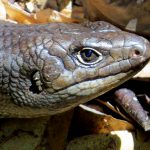LAND MULLET
The Land Mullet: Australia’s Chunky Skink Superstar
With a body length rivaling a school ruler (up to 60 cm!), this reptile stands out for both size and stealth.
- Colour: Ranges from polished dark brown to impeccable jet black.
- Scales: Smooth and glossy — giving it a shiny, almost “wet-look” finish (hence, the ‘mullet’ name!).
- Size: One of Australia’s largest skinks, growing up to around 60 cm in length.
- Build: Stocky, robust, and solid — if it were a lizard at the gym, it would definitely skip leg day.
Distribution & Habitat
- Endemic to: Australia, with a stronghold in eastern and south-eastern regions.
- Preferred habitats:
- Woodlands and forests
- Rocky outcrops
- Grasslands (particularly those with ample leaf litter and rocks for cover)
- Enjoys hidden nooks and crannies, staying under cover to avoid predators and enjoy a little peace and quiet.
Behaviour & Diet
- Activity: Diurnal (active during the daytime), but moves with such leisurely grace you might mistake it for being in slow-motion.
- Nature: Slow-moving, secretive, and not prone to any big showy displays. It’s a low-key lizard, content to observe the world at its own pace.
- Diet: Insectivorous
- Snacks include: insects, spiders, small snails, and other tasty invertebrates.
Reproduction
- Viviparous: That’s science-speak for “gives birth to live young”.
- Advantages: Embryos develop inside the mother, getting extra protection and a nutritional head start.
- Result: Out come little mini-mullets, fully formed and ready to take on the world (in a stealthy, slow-moving fashion).
Conservation
- Threats: Like a lot of native Aussie wildlife, they’re not immune to:
- Habitat loss (think urban spread, agriculture, land clearing)
- Degradation of natural hiding spots
- Predation by cats and dogs
- Status: Not considered endangered overall, but their populations can dwindle in areas where their homes are bulldozed for development or farmland.
